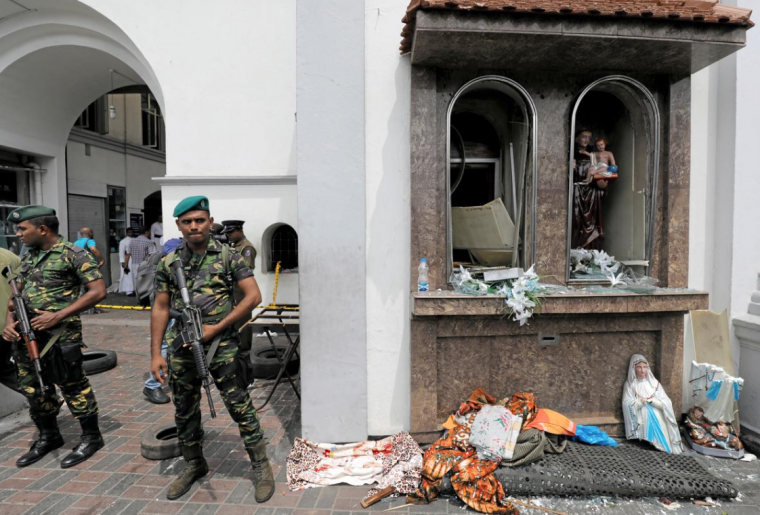Easter attacks on Christians are 'particularly wicked', says foreign secretary after Sri Lanka bombings

The foreign secretary Jeremy Hunt has condemned the deadly attacks on Sri Lankan churches and hotels on Easter Sunday.
On Twitter, he said he was "deeply shocked and saddened" by the attacks on three churches and four hotels that have left at least 207 people dead.
"To target those gathered for worship on Easter Sunday is particularly wicked. My prayers are with the victims and their families, and with those assisting in the response," he said.
His message on Twitter came after he warned in an Easter op-ed published in the Mail on Sunday that millions of Christians arould the world were living under the "shadow of persecution" and would be gathering on Easter Sunday in churches "at risk of attack".
"The world was rightly shocked by the flames destroying Notre-Dame in Paris last week, a tragedy that touched our common humanity. In too many parts of the world, however, it is the congregations themselves who perish," he said.
Mr Hunt said that there was something "inexpressably tragic" about the murder of innocent people simply because of their faith.
"There is a peculiar wickedness about hate-filled extremism that justifies murder because of the God someone chooses to worship.
"Of all the people who suffer persecution for their faith, it may surprise some to know that the greatest number are Christian," he said, quoting Open Doors' estimate of 245 million persecuted Christians worldwide.
Mr Hunt recently launched a review into the Foreign and Commonwealth Office's support for persecuted Christians, which is expected to be published in the summer.
He said the issue of religious persecution was important because it was normally an indicator of other human rights abuses.
In his op-ed, he continued: "Should religious persecution matter in an increasingly secular world? The truth is that, if a regime tries to control what you believe, it will generally seek to control every other aspect of your life.
"Where Christians are persecuted, other human rights are often brutally abused."
He went on to say that the UK government "must not allow misguided political correctness to inhibit our response" to the persecution of Christians.
"Anxious not to offend minorities or appear 'colonialist' in troublespots around the world, British governments have occasionally taken refuge behind the principle that all religions must be protected," said Mr Hunt.
"But this must include Christianity, where those targeted are often extremely poor, female and living in or close to poverty."
The coordinated attacks in Sri Lanka were carried out as Christians around the world gathered in churches to celebrate Easter Sunday, the holiest day in the Christian calendar remembering the resurrection of Jesus from the dead.
No one has come forward yet to claim responsibility for the attacks, which have been unanimously condemned by church and world leaders.
The Archbishop of Canterbury, Justin Welby, said the attacks were "appalling and dispicable" .
"Those affected by the appalling and despicable attacks on churches and hotels in Sri Lanka will be in the prayers of millions marking Easter Sunday around the world today," he said.
"On this holy day, let us stand with the people of Sri Lanka in prayer, condolence and solidarity as we reject all violence, all hatred and all division."
The Pope spoke of his "sadness and pain" over the attacks.
"I wish to express my heartfelt closeness to the Christian community [of Sri Lanka], wounded as it was gathered in prayer, and to all the victims of such cruel violence," he said.
"I entrust to the Lord all those who have tragically perished, and I pray for the injured and all those who suffer as a result of this tragic event."
British Prime Minister Theresa May said: "The acts of violence against churches and hotels in Sri Lanka are truly appalling, and my deepest sympathies go out to all of those affected at this tragic time. We must stand together to make sure that no one should ever have to practise their faith in fear."











